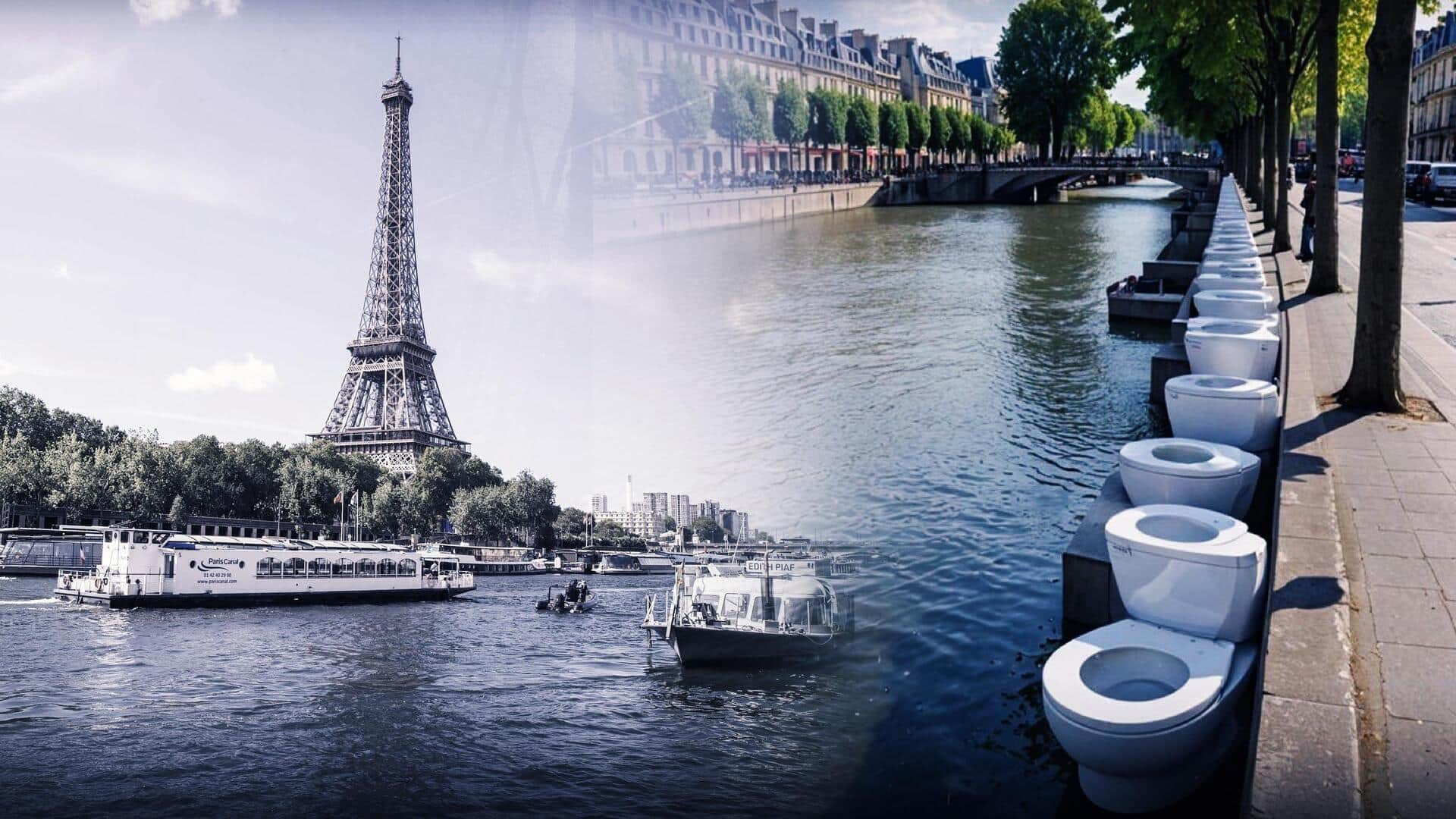
Are Olympians safe to swim in Seine after 'poop' threat?
What's the story
Paris is facing a situation akin to the movie "Under Paris." But in the current scenario, the Seine is at risk of being infested by human excreta rather than sharks, as in the movie. Parisians have been protesting, threatening to release their waste into the river after tests showed high bacteria levels from sewage and wastewater. With the Seine slated to host the triathlon and marathon swimming events in a few days, the question arises: how safe is it?
Infrastructure investment
Paris invests in infrastructure to improve Seine's water quality
The city has invested €1.4 billion in infrastructure to manage stormwater and prevent wastewater from flowing into the Seine. A massive underground water storage basin was opened next to Austerlitz train station in May, with hopes of collecting excess rainwater and preventing wastewater from entering the river. Despite these efforts, heavy rain could still push E. coli levels up, according to Metin Duran, a professor at Villanova University, who described it as a "complicated and very costly problem."
Website
Parisians take matter into their own hands
Tired of the stagnant situation, Parisians had taken the matter into their own hands. A website came up with the viral hashtag #JeChieDansLaSeineLe23Juin, which means "I sh*t in the Seine on June 23." A Google search for the term takes users to the website, which is represented by the "poop" emoji on the search engine. Local news outlet ActuParis reported that the protest started as a joke after city officials promised to make the river swimmable for the Summer Games.
Bacterial concerns
E. coli levels in Seine River raise alarm
Recent data from the Fluidion Open Data Initiative revealed E. coli bacteria levels in the Seine at 852 colony-forming units per 100 milliliters as of Tuesday, a decrease from Monday's 1,459 units. The World Triathlon Federation deems 900 units per 100 milliliters safe for competitions. According to the Centers for Disease Control and Prevention, E. coli causes diarrhea, urinary tract infections, pneumonia, and sepsis, whereas enterococci can cause meningitis and severe infections, and certain strains are resistant to available medicines.
Olympic readiness
Officials insist Seine will be ready for 2024 Olympics
Last week, International Olympic Committee executive Christophe Dubi stated that there were "no reasons to doubt" that the events scheduled to take place in the Seine would proceed as planned. Notably, Tony Estanguet, president of the Paris 2024 organizing committee, and Paris Mayor Anne Hidalgo also took a dip in the river on Wednesday to prove the river is clean enough for swimming. President Emmanuel Macron had planned to swim there on June 23, but opted out, citing "political reasons."
Public protest
What happens if they can't use the Seine?
If the Seine is deemed unsafe for swimming, the triathlon will be reduced to a duathlon instead, with the swimming portion removed. The marathon swimming race would also be relocated to the Vaires-sur-Marne Nautical Stadium in Paris, which already hosts rowing and canoe-kayaking competitions, CBC News reported. "It's not very common, but it has happened a few times," Olalla Cernuda, head of communications at World Triathlon, told news agency AP.